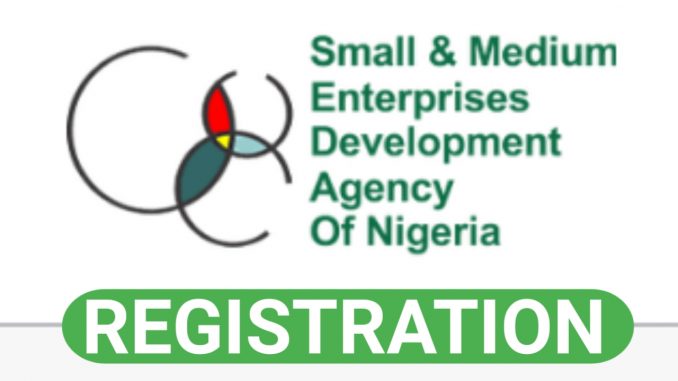
The Micro, Small and Medium Enterprises (“MSME”) represent one of, if not the most important sector of our economy. It currently represents 96% of the businesses in Nigeria and contributes 75% of the National employment. Of the 17.2 million MSMEs in Nigeria, over 17 million are micro-enterprises. Thus, growth in this sector is directly correlated with growth in the economy as a whole and the level of employment throughout Nigeria.
JOIN US FOR MORE ON:
or
or Follow us on WhatsApp Channel
There is no doubt that a nurtured and well structured MSMEs sub-sector can contribute significantly to employment generation, wealth creation, poverty reduction and sustainable economic growth and development in Nigeria. However, a number of challenges are inhibiting the potential of MSMEs in Nigeria. Prominent among these challenges are:
- Very low access to affordable finance.
- Poor access to Business Development Service (BDS), and
- Inadequate infrastructure/high cost of doing business.
For example, a recent National Bureau of Statistics (NBS)/SMEDAN survey of MSMEs reported that 73.24% of the topmost priority of assistance needed by MSMEs’ operators is finance. In addition, only 4.2% of 17.2 million MSMEs have been able to access loans or overdrafts from financial institutions while new entrants or start-ups find it practically impossible to access funds from banks.
In order to address these challenges the “NATIONAL ENTERPRISE DEVELOPMENT PROGRAMME (NEDEP)” was initiated by the Honourable Minister of Industry, Trade and Investment, Mr. Olusegun Aganga, CON. The programme, which is aimed at generating an estimated 5.0 million direct and indirect jobs between 2013 and 2015, is focusing on Skills Acquisition, Entrepreneurship Training/Business Development Service (BDS) and Access to Finance.
| SEE ALSO: 5 Reasons Why You Should Consider A Personal Loan |
The entrepreneurship training/business development service component is being implemented under the One Local Government One Product (OLOP) platform while the access to finance component is being handled by the Bank of Industry (BOI) and the skills acquired by the Industrial Training Fund (ITF).
The NEDEP, which is being coordinated by the Small and Medium Enterprises Development Agency of Nigeria (“SMEDAN”) is guided by empirical research based on experiences of successful similar enterprise development initiatives in Africa and Asia and the OLOP pilot projects in Kano and Niger States.
2. Benefits/Potentials of NEDEP
- It is aimed at generating an estimated 5.0 million direct and indirect jobs between 2013 and 2015.
- It will revitalize the rural economy, improve employment opportunities, create wealth and alleviate poverty in rural areas in Nigeria. This will be done through the establishment of sustainable MSMEs in the 774 Local Government Areas (LGAs) based on comparative and competitive advantages.
- Entrenchment of entrepreneurial culture, industrialization of rural areas, enhanced industrial cluster development, increased MSMEs contribution to GDP, increased export potentials, etc.
- Elimination of youth restiveness, militancy and other social vices (e.g. kidnapping, extremists’ insurgence like Boko haram, prostitution, armed robbery, drug abuse, thuggery, etc).
- The entrenchment of the social security system in Nigeria.
3. Attributes of NEDEP
- Delivery by 3 Agencies (SMEDAN, ITF, BOI)
- Formation and registration of Cooperative Societies
- National and State Council on MSMEs
- Restructuring of implementing Agencies (SMEDAN, BOI, ITF)
- Implementation of the One Local Government One Product (OLOP) programme.
- Development of One Product for Export in each State
- Upgrading of Industrial Development Centres (IDCs) to MSMEs Clusters
- Provision of Common Facilities & Services
- Continuous Engagement, Monitoring & Reporting System
| SEE ALSO: 5 Common Loan Mistakes Business Owners Make |
4. Implementation strategies
- Sensitization and needs assessment
- Selection of products
- Baseline surveys and value chain analysis
- Formation and registration of cooperative societies
- Development of business plans by cooperative societies
- Assessment of business plans and provision of finance
- Access to markets
- Access to equipment/machines
- Entrepreneurship training
- Vocational skills training
- Delivery of Business Development Service (BDS)
- Monitoring and evaluation (impact assessment)
5. Current activity
- Formation and registration of cooperative societies
- Collection of business plans from cooperative societies across the country.
How To Apply
For more information, please click here
Please click to Download the Guideline and criteria for accessing NEDEP Loan
Cooperative Questionnaire-checklist (Repaired) Guidelines & Criteria
Stand-alone Questionnaire-checklist Guideline & Criteria
